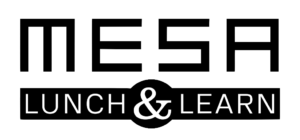M+E Connections

MESA Lunch & Learn: Microsoft Veteran Explores What Makes a Great Leader
Story Highlights
Great leaders often have a lot in common and they tend to make their companies great places to work while also making those firms more productive, according to James Dunkelberger, partner director of program management at Microsoft.
The best leaders tend to realize that there are “natural tensions that exist around roles within an organization” and “understand that when mistakes happen, when failures happen, it’s very, very rare that it’s an individual problem,” he said during a MESA “Lunch and Learn” online discussion on “Attributes of Great Leaders,” April 28 via its MESAverse platform and Zoom.
“It’s usually a process or organizational problem. And so understanding that, appreciating that and treating the problems from that perspective, I [have] found to be super helpful,” said Dunkelberger, who has been with Microsoft for over 26 years, according to his LinkedIn profile.
“Culture eats strategy for lunch, I think, is one of the phrases that I’ve heard,” he told viewers. “It is critical, critical, critical to create a culture that avoids fear-based motivation because nobody does their best work when they’re afraid,” he argued.
What is important for a leader at an organization to do is “listen to the team,” find out “what they need to be successful and then” tells his or her people they did a “great job” if their work earned praise. It is, after all, important to “make sure that people feel appreciated for who they are and what they bring, both as individuals and teams collectively,” he explained.
 The first thing for a manager or other leader to do is understand himself or herself as a leader, he said: “What are your strengths? What are the things that make you different than other leaders? What’s your super power? And also understanding your limitations. What are you not good at? And then, of course, that depends on the circumstance that you’re in. It could be you have a technological gap. It could be you have a subject matter expertise gap. It could be inexperience in a particular business area. Just understanding what those things are is critical when you’re figuring out where to lead from.”
The first thing for a manager or other leader to do is understand himself or herself as a leader, he said: “What are your strengths? What are the things that make you different than other leaders? What’s your super power? And also understanding your limitations. What are you not good at? And then, of course, that depends on the circumstance that you’re in. It could be you have a technological gap. It could be you have a subject matter expertise gap. It could be inexperience in a particular business area. Just understanding what those things are is critical when you’re figuring out where to lead from.”
Richard Atkinson, president of the Content Delivery & Security Association (CDSA), who introduced Dunkelberger, pointed out: “In the tech world we’re in, I think certainly a lot of leaders are pretty strong in the tech area, but then they’re pretty weak” when it comes to other areas, including human resources. Additionally, managers and other leaders may ignore conflicts and “tend to sweep it under the rug and it just keeps boiling up.”
Agreeing, Dunkelberger said: “Conflict is something that you have to seek out and root it out and understand where people have conflict because, generally speaking … conflict comes when people are optimizing for different things” at an organization. “One person prioritizing one thing, and somebody else is prioritizing something else. That’s often a source of conflict.”
Dunkelberger added: “If you create an environment where you have people who are given the space and given the opportunity to share what their perspectives are and give it its proper due and ask the questions and seek a place of understanding, and you’re actively seeking out different opinions through the process of trying to figure out how you’re going to solve a particular problem or accomplish a particular objective, then you will root out some of that conflict before it even happens. So it allows everyone to understand everyone’s perspective before we really get started and get into the meat of things.”
The MESAverse is MESA’s virtual work environment for its members and communities to watch live presentations, network, and step on the stage to share opinions. MESAverse is using ICVR’s RendezVu, a proprietary, interactive 3D-world application that will allow for hybrid live and virtual events and regular day-to-day interactions that go far beyond video conferencing.
To register for future weekly Thursday “Lunch and Learn” events, click here.
To register for the May 5 “Lunch and Learn” event, featuring a discussion on “Metadata Structures and Taxonomies,” with guest speaker Joseph Busch, partner at Semantic Staffing and founder and principal consultant at Taxonomy Strategies, click here.









